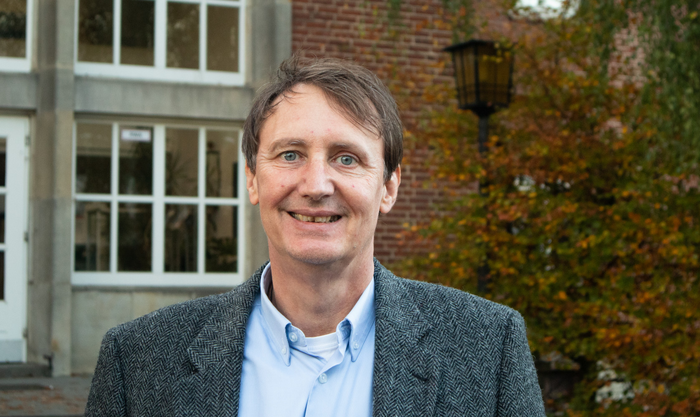Could consuming a cup of coffee be an effective way to protect yourself against infection with coronavirus? What has not yet been proven in practice is at least very plausible according to biochemical research: The team led by chemist Professor Nikolai Kuhnert, including Dorothea Schmidt and Nicholas Ohl of Jacobs University, was able to show experimentally – in the laboratory – that the chemical compound 5-caffeoylquinic acid (trival name: chlorogenic acid), which is found in coffee, inhibits the interaction by a factor of 50 between the SARS CoV-2 spike protein of the corona virus and the ACE-2 receptor, the docking site for the virus on the human cell.

Credit: Jacobs University
Could consuming a cup of coffee be an effective way to protect yourself against infection with coronavirus? What has not yet been proven in practice is at least very plausible according to biochemical research: The team led by chemist Professor Nikolai Kuhnert, including Dorothea Schmidt and Nicholas Ohl of Jacobs University, was able to show experimentally – in the laboratory – that the chemical compound 5-caffeoylquinic acid (trival name: chlorogenic acid), which is found in coffee, inhibits the interaction by a factor of 50 between the SARS CoV-2 spike protein of the corona virus and the ACE-2 receptor, the docking site for the virus on the human cell.
A regular cup of filter coffee – in the laboratory setting it comprises exactly 200 milliliter – contains about 100 milligram of the 5-caffeoylquinic acid. Experiments in the laboratory showed that 5-caffeoylquinic acid in this concentration is high enough to prevent the docking of the spike protein to the ACE-2 receptor – and therefore also inhibit the infection process. To prove that this process works in practice as well, further research is required.
It also takes further studies to determine how long the inhibitory effect of 5-caffeoylquinic acid would last. “As chemists, we cannot answer the practical question of whether drinking coffee could really serve as a preventive measure to protect against infection. But we can say it is plausible,” said Kuhnert. “Many people drink coffee and that it has many other positive effects is well established,” says the chemist. Regular coffee drinkers suffer less frequently from type II diabetes, for example, the scientific evidence for this is very good, he points out.
For their studies on the effect of 5-caffeoylquinic acid on spike protein and ACE-2 receptor, the team led by Nikolai Kuhnert had to develop a new measurement technique: differential scanning fluorimetry or nano-DSF. The team recently published a detailed description of this method in the journal Food & Function, titled: “Investigating the interaction between dietary polyphenols, the SARS CoV-2 spike protein and the ACE-2 receptor.”
As a next step, the findings on the interaction between coffee and the coronavirus will now be communicated to researchers in psychology as well as social science: “Epidemiological studies could determine whether regular coffee drinkers become more often infected with Corona or not,” says Nikolai Kuhnert. Context and implications for Long Covid will also be brought into view here.
Questions answered by:
Prof. Nikolai Kuhnert | Professor of Chemistry
E-Mail: [email protected] | Tel: +49 421 200-3120
Contact:
Sandra Ruppel | Corporate Communications
[email protected] | Tel.: +49 421 200-4943
About Jacobs University Bremen:
Studying in an international community. Obtaining a qualification to work on responsible tasks in a digitized and globalized society. Learning, researching and teaching across academic disciplines and countries. Strengthening people and markets with innovative solutions and advanced training programs. This is what Jacobs University Bremen stands for. Established as a private, English-medium campus university in Germany in 2001, it is continuously achieving top results in national and international university rankings. Its more than 1,600 students come from more than 110 countries with around 80% having relocated to Germany for their studies. Jacobs University’s research projects are funded by the German Research Foundation or the EU Research and Innovation program as well as by globally leading companies.
For more information: www.jacobs-university.de
Facebook | Youtube | Twitter | Instagram | LinkedIn
Journal
Food & Function
Method of Research
Experimental study
Article Title
Investigating the interaction between dietary polyphenols, the SARS CoV-2 spike protein and the ACE-2 receptor




